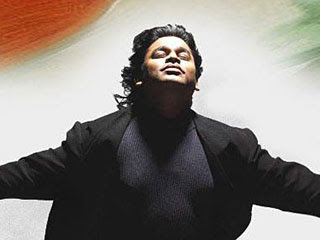
Who would’ve thought that Jai Ho! A common salutation across the rural India in the north, will one day find the topmost place in a list of Most Influential words in Hollywood.
The words Jai Ho! and Slumdog have made it to the list called “Holly Words” following a study by the Global Language Monitor, which uses an algorithm to track the frequency of words and phrases in the world's print and electronic media.
For those who are uninitiated, Jai Ho! is a Hindi expression used mostly by rural or suburban locals in North India mostly, either to rejoice an occasion especially festivals or to greet each other casually. Derivatives are common such as Jai Sri Krishna (Victory to Lord Krishna), Jai Sri Rama (Victory to Lord Rama), Jai Hanuman (Victory to Lord Hanuman), and the likes.
This everyday common expression has so wonderfully been intertwined with music and lyrics by A R Rahman and Gulzar and today it reverberates through Chat Shows, college fests, and public events such as Cricket matches and soon to come election campaigns.
The popularity of the words hit me recently, when I caught the glimpse of two popular chat shows – Oprah and The Ellen DeGeneres Show, that had its audience dancing away to these words. I got used to such scene on the TV as more and more people started doing the dance on Jai Ho, mostly Americans mind you, including the Oscar Production unit members.
Whats more, the song has been re-recorded by The Pussycat Dolls and Nicole Scherzinger with English lyrics. This version will serve as the video version for the international release of "Jai Ho".
(The song was released on February 23, 2009 on the U.S. iTunes Store and released internationally on February 24. Rahman and the Pussycat Dolls are set to perform the remix version on March 13 on the Today Show.)In recent times, ‘Chak De’ (loosely meaning ‘Go for it’, I think) was one such popular phrase that caught the nation by a storm, following the success of the Shah Rukh Khan starrer movie titled the same. One could hear it at every hockey or cricket match, making headlines for every instance when Indians did well in any international sports.
However I feel Chak De was not a nationally well known word as it is too Punjabi. Not all Indians would be able to identify with the phrase; I myself struggled for the appropriate translation of the phrase for my husband who has lived mostly in the South of India. I had difficulty associating ‘Chak De’ with victory.
But Jai Ho leaves no confusion in the minds. From being a common household name for Indian boys to a prefix before several Indian gods (as explained above), ‘Jai’ has come a long way. It first hit the Indian silver screens in the early 70s when Amitabh Bacchan kept the name “Vijay” and its nickname ‘Jai’ for over 20 movies. It has since been immortalized as the identity of ‘the angry young man’.
Jai Ho is an uncomplicated simple to understand expression, finding its place easily on everybody’s tongue, be it a Malayali, Manipuri, Bengali, English, American, Spanish or Obama. I wouldn’t be surprised if US President, Barack Obama uttered Jai Ho! before announcing his Aid policy to beat recession, wishing all the success it can get.
Jai Ho! will have several paeans written after it in newspapers and blogs (like mine). A phrase we should thank Subhash Ghai for, as Rahman credits the film maker for introducing this expression to Rahman during the making of “Yuvraaj”. For months to come, this infectious din set off following AR Rahman's Oscar victory, will ring across the nation.
So brace yourself for every hopeful event, every public announcement and every film award ceremony to perhaps start and end with a “Jai Ho!”

